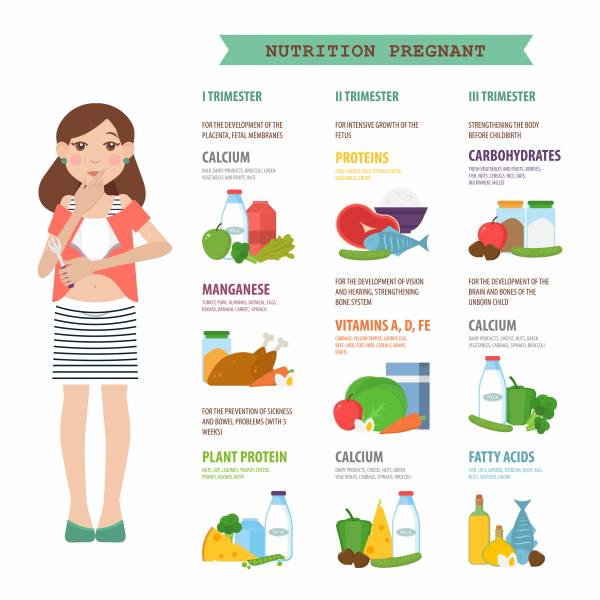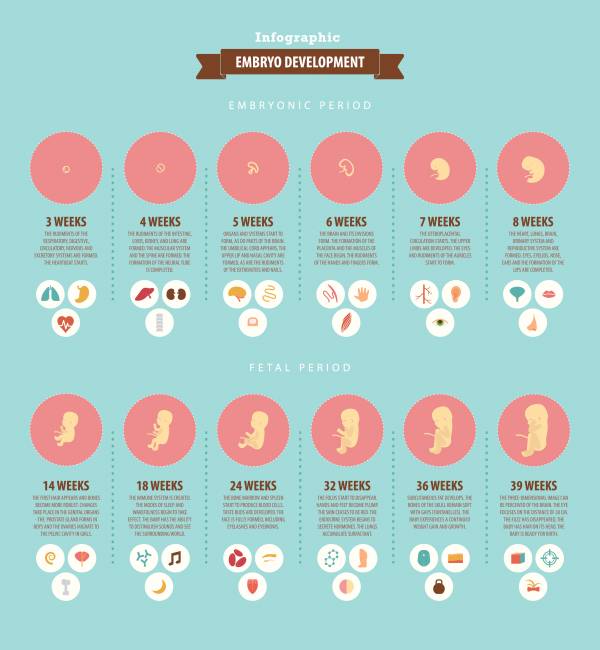Healthy eating is one of the most important aspects of a healthy pregnancy. Nutrition is one of the best ways a mother can support the development and health of her growing baby.
Eating a balanced diet can be simple if you have the information you need. If you have not been eating your best or need a push to start a healthier diet, your pregnancy is a great time to build new healthy habits, educate yourself on nutrition, and develop healthy attitudes about food and nutrition.
Healthy eating is one of the most important aspects of a healthy pregnancy. Nutrition is one of the best ways a mother can support the development and health of her growing baby.
Eating a balanced diet can be simple if you have the information you need. If you have not been eating your best or need a push to start a healthier diet, your pregnancy is a great time to build new healthy habits, educate yourself on nutrition, and develop healthy attitudes about food and nutrition.
How Much Is Enough?
Mothers are often worried about finding a balance between getting enough calories and nutrition without packing on baby weight. Your main concern during pregnancy should be on growing a healthy baby by consuming nutrients to fuel the baby’s growth. Having a healthy lifestyle built around good nutrition, moderate exercise, and maintaining healthy weight gain will benefit both you and your baby in the long run.
The American College of Obstetricians and Gynecologists (ACOG) recommends that a pregnant woman who has a body mass index (BMI) in the normal range before pregnancy requires about at least 300 extra calories a day in the first two trimesters, and that number moves up to 500 extra calories in the second and third trimester. Women who are pregnant with multiples should discuss with their doctor the extra calorie requirements for additional babies and add about 600 extra calories per day.

Click to enlarge
Healthy Nutrition Supports Development
A healthy focus on nutrition can help boost brain development, decrease risk for birth defects, and support a healthy birth weight. Mothers can also enjoy the benefits of good nutrition by decreasing common pregnancy concerns including anemia, gestational diabetes, and preeclampsia. Focusing on meal planning can also aid in dealing with morning sickness, fatigue, digestion, and constipation issues.
There are many well-researched nutrition plans for the prenatal period and it can be daunting for any new mother. Research consistently demonstrates that the best optimal prenatal nutrition is to consume balanced, whole foods. An organic diet can be achieved by eating a variety of foods including garden fresh vegetables, lean meats, nuts and seeds, grains, healthy fats, and very little to no sugar.

Click to enlarge
Nutrition for Pregnancy Made Simple
An optimal plan for nutrition for pregnancy is a varied, balanced, natural, whole food diet. This simple plan will allow you to shop and prep simple meals, eat on the go, and prioritize your health.
Meals built around soups, stews, and broths are a simple way to pack in nutrition and can be prepared ahead of time. Smoothies, salads, bento boxes, and simple snacks with a balance of protein, fat, and vegetable sources will sustain and nourish the body.
As your baby grows, your meals may get smaller but more frequent. Grazing on small bites is a great way to get the nutrition you require, keep nausea at bay, and your energy levels high. In the reference “The Healthy Pregnancy Book: Month by Month, Everything You Need to Know from America’s Baby Experts,” it is recommended that women in the prenatal period enjoy healthy snacks that have a ratio of least three grams of fiber, three grams of protein, and include healthy fats for optimal nourishment.
Healthy Snack Options
- Hummus with broccoli and carrots
- Whole milk string cheese and an apple
- Whole milk yogurt with blueberries and almonds
- Whole milk cheddar cheese and rice crackers
- Apples dipped in nut butter
- Avocado slices on whole grain bread
- Boiled egg, avocado, and cherry tomatoes
- Whole milk cottage cheese and berries
- Tuna and whole grain rice crackers
- Egg salad on whole grain toast
Important Vitamins and Minerals for Pregnancy
Calcium: Builds baby’s strong bones and teeth
Food suggestions: Whole milk, cheese, yogurt, sardines, green vegetables (1,300 mg for ages 14–18 years; 1,000 mg for ages 19–50 years)
Iron: Helps red blood cells deliver oxygen to baby
Food suggestions: Lean red meat, poultry, fish, beans (27 mg)
Vitamin A: Forms baby’s healthy skin, eyes, and bones
Food suggestions: Carrots, green leafy vegetables, sweet potatoes (750 micrograms for ages 14–18 years; 770 micrograms for ages 19–50 years)
Vitamin C: Builds baby’s healthy teeth, gums, and bones
Food suggestions: Citrus fruit, broccoli, tomatoes, strawberries (80 mg for ages 14–18 years; 85 mg for ages 19–50 years)
Vitamin D: Builds baby’s bones, teeth, eyesight, and skin
Food suggestions: Sunlight, fortified milk, fatty fish
Vitamin B6: Helps form baby’s red blood cells and helps body use protein, fat, and carbohydrates
Food suggestions: Beef, liver, whole-grain cereals, bananas
Vitamin B12: Maintains baby’s nervous and helps form red blood cells
Food suggestions: Meat, fish, poultry, milk (vegetarians may need to take a supplement)
Folic acid: Helps prevent baby’s birth defects and issues with the brain and spine, as well as aiding in the growth and development of the baby and placenta.
Food suggestions: Green leafy vegetables, orange juice, beans, fortified cereals, enriched bread and pasta, nuts
Simple Tips for Optimal Prenatal Nourishment
- Eat organic fruits and vegetables as often as possible in order to avoid harmful pesticides and herbicides.
- Eat organic, full-fat dairy products that do not contain hormones or antibiotics.
- Eat only lean red meat that is grass fed or organically grown.
- Eat only chicken that is free-range or organically grown.
- Eat fish that is fresh, wild, and comes from deep sea waters. Avoid all farmed seafood.
- Eat whole grains and avoid processed or refined flour and gluten. Include pasta and breads made with spelt flour, brown rice, amaranth, millet, or quinoa.
- Avoid all GMOs (genetically modified organisms).
- Avoid sugars. Choose natural sweeteners like maple syrup, honey, or dates. Aim to avoid all sugars in the postpartum period of recovery.
- Drink at least 8 glasses of filtered water day.
- After 4-6 weeks, apply the 80/20 principle with 80 percent of the diet being free of sugar and 20 percent allowing for the occasional treat or reward.
- Include essential fats including omega 3, 6, and 9 essential fatty acids.
- Select healthy vegetable oils like flax seed oil, olive oil, hemp oil, and coconut oil.
- Add an additional high protein snack per day during the breastfeeding and postpartum period.
Daily Prenatal Nutrition Protocol
- 1 serving dark leafy green vegetables
- 2 servings of colorful vegetables
- 1 serving EFA-rich food
- 1 serving of nuts
- 1-3 servings of fruits
- 1-2 servings of grains
- 2-4 servings dairy (or calcium alternatives), full-fat whole milk from pasture-fed cows
- 4 tablespoons butter from pasture-fed cows
- 2 eggs (or more), preferably from pastured chickens
- 4 tablespoons coconut oil
- Cold pressed olive, sesame, and flaxseed oil
- Filtered water: 10 glasses (or 2.3 liters)
- 1 glass coconut water
Minimum calories required per day:
- 1,800+ calories per day during the first trimester
- 2,200+ calories per day during the second trimester
- 2,400+ calories per day during the third trimester
Weekly Prenatal Nutrition Protocol
- Lentils or beans 2-4 times per week
- Grass-fed red meat/organic pastured chicken 3-5 times per week
- Fresh wild seafood, 2-4 times per week
- 3-4 ounces fresh liver, 1-3 times per week
Prenatal Foods to Avoid
- Sugar, soda, and sweetened juices
- Caffeine (exception: organic green tea)
- Soy
- GMOs
- Non organic meats, dairy, and vegetables
- Fat-free foods
- Fast food
- Junk food
- Nitrates, chemicals, and preservatives
- Food coloring
- Unpasteurized milk and foods made with unpasteurized products
- Hot dogs and deli meats (unless they are heated until steaming hot just before serving)
- Paté and meat and cheese spreads
- Smoked seafood
- Raw and undercooked seafood, eggs, or meats
Notes on Postpartum Nutrition
As with pregnancy, the postpartum period is a critical time to focus on nourishing foods to provide your body with the nutrition it needs to recover, repair, and heal. Most women should continue with the prenatal protocol in the postpartum period because it allows for extra calories for breastfeeding and it is solely focused on nourishment.
When you are breastfeeding, your body will require about 500+ extra calories a day to support your milk production. As a postpartum and breastfeeding mother, your nutrition and hydration is the best way to ensure a healthy recovery process, healing, and establish a good milk supply.
For More Information:
1. The Healthy Pregnancy Book: Month by Month, Everything You Need to Know from America’s Baby Experts
5. https://www.westonaprice.org/?s=pregnancy
6. https://www.acog.org/patient-resources/faqs
8. https://www.who.int/elena/titles/nutrition_counselling_pregnancy/en/







